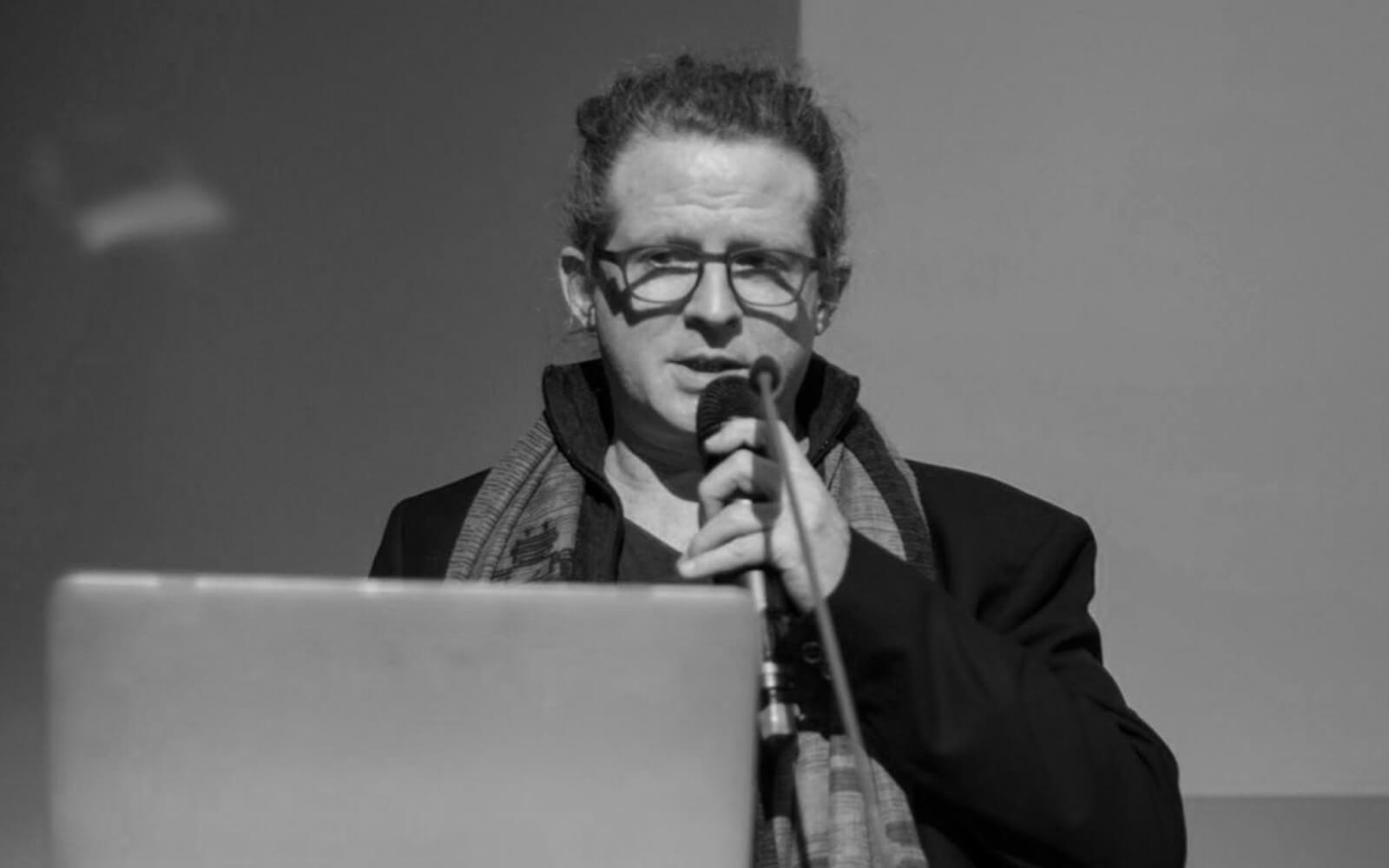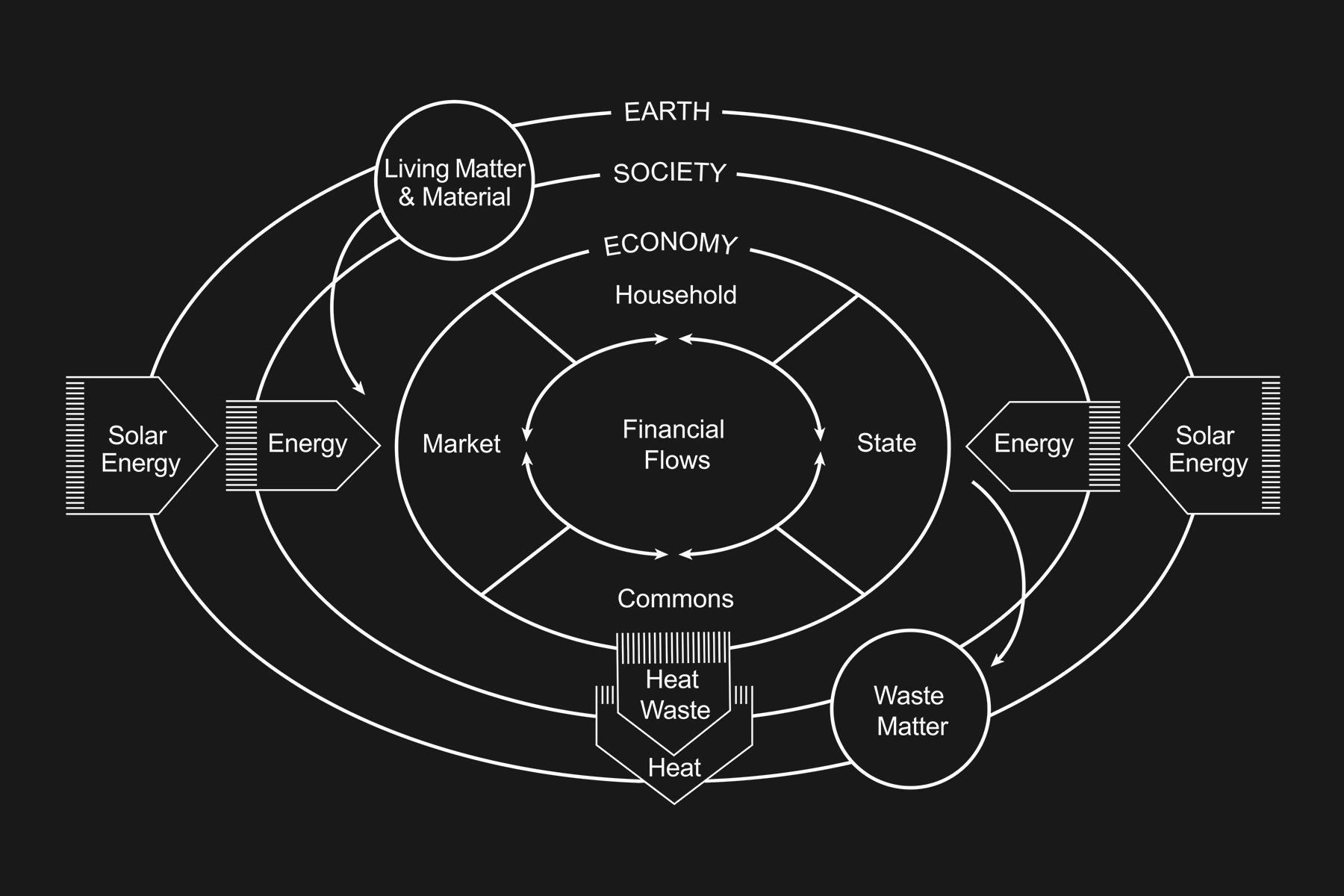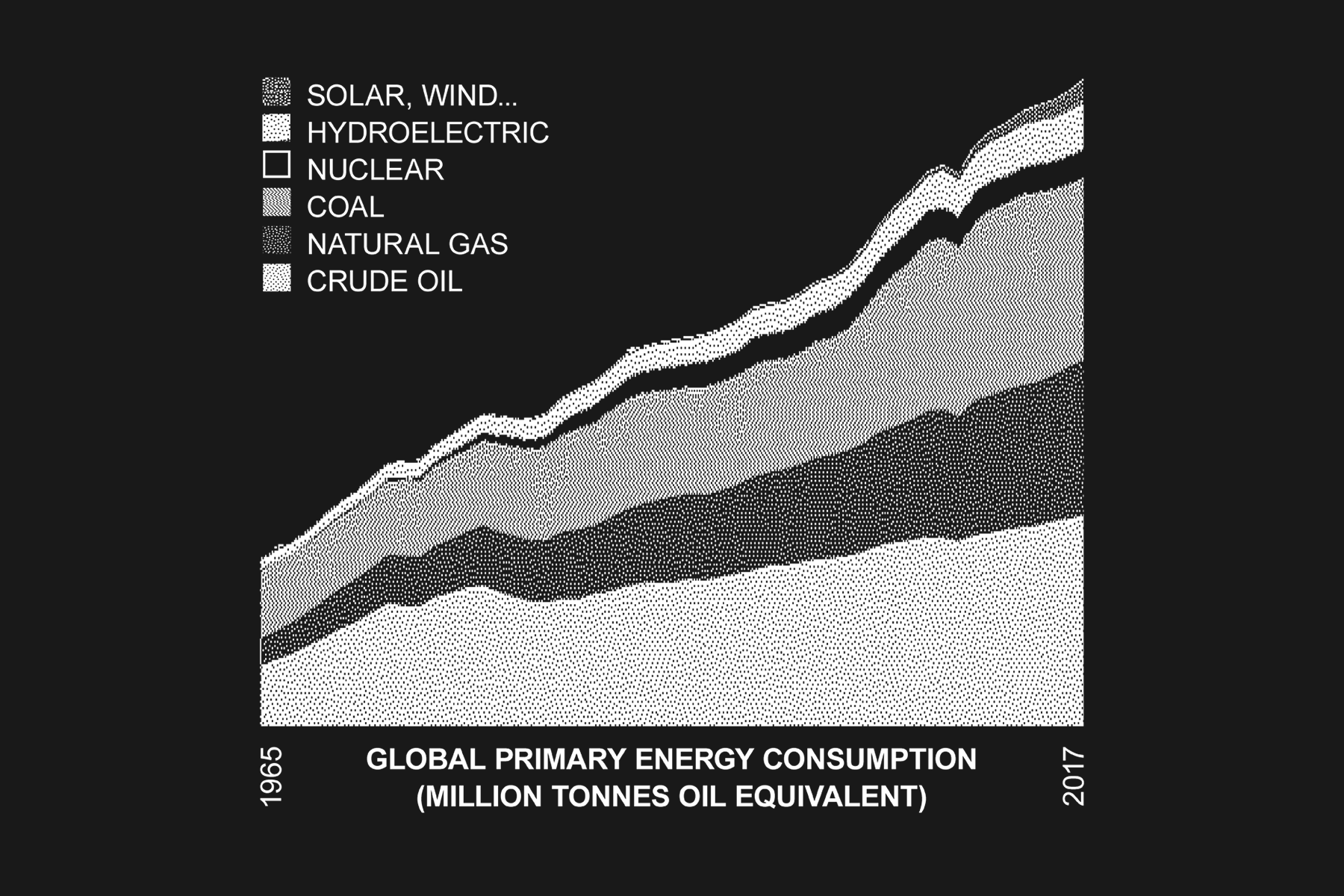Post Growth: The Birth of Energy
“Oil, gas, and coal have become the villains on a warming planet, but who could be against energy?”—Cara New Daggett, The Birth of Energy: Fossil Fuels, Thermodynamics, and the Politics of Work

Chloe Stead is an art critic and editor based in Berlin. Her writing has been featured in publications such as Artnet, Art Agenda, Frieze, Spike, and Mousse Magazine.
With the exception of climate change deniers, it’s clear to everyone by now that our reliance on fossil fuels is destroying the earth and threatening our continued existence. What’s talked about much less, however, is that replacing oil, gas, and coal with alternative energy sources is not, on its own, enough to avert climate disaster. As the author and climate activist Ted Trainer puts it: “It would be difficult to find a more taken for granted, unquestioned assumption than that it will be possible to substitute renewable energy sources for fossil fuels, while consumer-capitalist society continues on its merry pursuit of limitless affluence and growth.”11
Trainer isn’t the only academic who sees growth and energy as inextricably entwined. Recently, DISNOVATION collaborator Baruch Gottlieb sent me a presentation by Jean-Marc Jancovici, in which the climate expert links post World War II GDP growth directly to the amount of energy we release into the earth, pointing out in no uncertain terms that the kind of continuous growth promised by politicians is incompatible with reducing our dependence on fossil fuels. “There’s absolutely no way we can address climate change with the correct order of magnitude, which is [reducing] the world’s emissions by three in thirty years, without triggering a world recession,” he says to an uncomfortable audience of economists. “Today saying that we are serious about climate change and that we will [still] have growth (…) is a big fat lie.”12
What can we do about this contradiction? Trainer’s solution is what he calls the “simple way,” or, in less euphemistic terms, drastically reducing consumption levels to 10% of their current levels. While this might be more of a provocation than a serious proposal, Trainer’s own dedication to this way of life—he doesn’t fly and grows his own food—supports, at least anecdotally, political scientist Cara New Daggett’s assertion that, rather than sitting back and waiting for renewable energies and new technology to save the day, we need “new ways of thinking about, valuing, and inhabiting energy systems.”13
“It’s important to move away from the idea of energy as a metaphor ‘tinged with virtue’ and towards a concept of energy as a ‘scientific entity’ with a material imprint. This, I would argue, is where artists like DISNOVATION come in.”
The problem, Daggett explains in the introduction to her 2019 book The Birth of Energy: Fossil Fuels, Thermodynamics, and the Politics of Work, is that because the term “energy” is bound up in with the “pleasures of modern life” and any discussion about reducing our consumption habits seems to suggest “the denial of the higher planes of civilization and life.” It’s precisely for this reason, she argues, that fossil fuel extractors call themselves energy companies. “Energy seems to invite grand thinking,” Daggett writes. “… Oil, gas, and coal have become the villains on a warming planet, but who could be against energy?”14
In order to change this dynamic, it’s important to move away from the idea of energy as a metaphor “tinged with virtue” and towards a concept of energy as a “scientific entity” with a material imprint. This, I would argue, is where artists like DISNOVATION come in. As well as being storytellers, artists have a unique ability to give shape to otherwise intangible concepts and notions. With many of the works in “Post Growth,” for example, the collective use coins made from PET Plastic—itself the result ancient sunlight concentrated in organic materials over millions of years—to represent different units of energy, such as the amount of sunlight15 that falls in one year in different cities across the world. In doing so they make clear the shortfall between the energy we produce and the energy we spend. The hope is that, by holding these units of energy in their hands, viewers can no longer ignore their own part in our rapidly warming world.
Post Growth
Life, After the CrashExplore more of "Post Growth:"
→ HOLO.mg/stream/
→ HOLO.mg/imal-post-growth/



